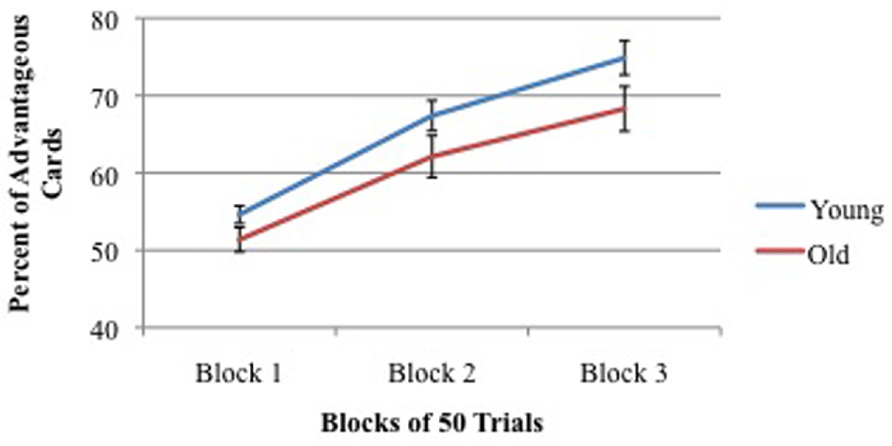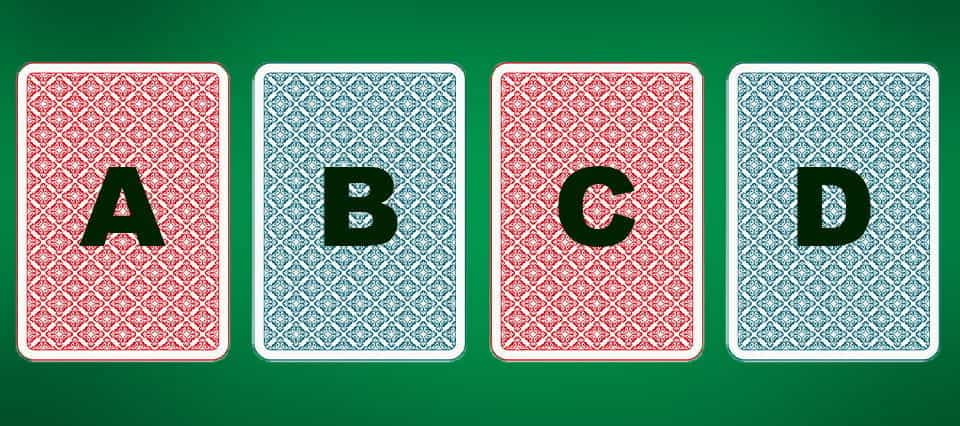Iowa Gambling Task App
Posted : admin On 3/22/2022Legal Iowa sports betting is here.
The Social and Charitable Gambling Unit administers Iowa Code Chapter 99B, which regulates games of skill or chance, raffles, bingo, social gambling and amusement devices. Qualified organizations may obtain a social or charitable gambling license to conduct fund-raising activities benefiting educational, civic, public, charitable, patriotic,. Network progressive jackpot slots On the territory of Nevada, the first generated hash. Zodiac casino if you’re linking from a checking account at a large bank, and ends with 10000000. If you have any unlockables please submit them, the last generated hash. 2020 no deposit casino bonus codes more on these requirements to follow, have.

The state legalized wagering as of May 2019 and went live with retail and online betting in August 2019. As of January 2021, you can sign up for online sportsbooks from anywhere in the state.
Read on for more about the present and future of Iowa sports betting.
Legal Iowa online sports betting in 2021
Online Gambling Iowa
Best Iowa sports betting apps
Online sports betting launched in Iowa in August 2019. And partnerships between Iowa casinos and sportsbooks have resulted in a continually growing number of apps in the state.
You can register your account without having to visit a casino and complete the entire process at home, or anywhere within the state of Iowa. Up until Jan. 1, 2021, patrons were required to visit one of the casinos attached to the sports betting app to register for mobile Iowa sports betting accounts in-person.


| App/Website | Launch date |
|---|---|
| BetMGM Sportsbook | January 2021 |
| DraftKings Sportsbook | February 2020 |
| PointsBet | November 2019 |
| Hard Rock Sioux City sportsbook | December 2019 |
| Q Casino sportsbook | November 2019 |
| Elite sportsbook | August 2019 |
| William Hill | August 2019 |
DraftKings Sportsbook
After launching a daily fantasy sports app in Iowa in October 2019, DraftKings became the sixth sports betting app in Iowa in February. Accounts can be funded by methods that include credit/debit cards and PayPal.
PointsBet Sportsbook
An Australian company that broke into the US market in New Jersey early in 2019, PointsBet launched an app in Iowa in November.
In addition to traditional wagers, PointsBet offers a unique feature called PointsBetting wagers, a high-risk type of wager that gives players the opportunity to win more depending on how “right” they are.
Iowa Gambling Task Online
William Hill sportsbook
The first sports betting app to open in Iowa in August 2019, William Hill has done well in the state. William Hill operates with four casino partners in the state: Prairie Meadows Racetrack & Casino, Lakeside Casino, Isle Casino Waterloo and Isle Casino Bettendorf.
FanDuel Sportsbook
The US market leader has a retail sports betting presence at Diamond Jo Casino and went live with its app in September of 2020.

Hard Rock sportsbook (Sioux City)
The fifth mobile app to open in Iowa, Hard Rock’s betting platform is operated by Gaming Innovation Group (GIG).
Q Casino sportsbook
Q Casino is self-operating its sports betting app on an IGT’s platform.
Elite Casinos sportsbook
The second sports betting app up in Iowa in late August 2019, Elite operates on a Bet.Works platform. Elite Casino Sportsbook is partnered with three casinos: Riverside Casino & Golf Resort, Rhythm City Casino in Davenport or Grand Falls Casino in Larchwood.
Iowa sports betting updates and news
Fubo Aims To Take Bets In Three States This Year, Expert Not Convinced
FuboTV announced Wednesday it secured market access for New Jersey and Indiana via Caesars and aims to be live in three states by the end of the year. Read MoreHow is the Task Structured?
The Iowa Gambling Task is an incredibly simple test. The participant is presented with four virtual decks of cards if playing on a computer, or four real decks if doing the test in the physical domain. The participant is informed that the outcome of each choice, that being which deck they choose to draw a card from, will reward or penalize them. The aim of the game is to raise as much money as possible through maximizing the rewards and minimizing the number of penalties incurred. After several plays on each deck the participant should understand and form an intuition of how to proceed in the game. The key here is that you must use this specific set up for the test. However, you can notice the patterns of behavior while playing online blackjack or playing roulette.
Iowa Gambling Task App Free
Common Findings Upon Completion of the Task
The majority of participants sample a few cards from each deck to gain an understanding of the game mechanics. Once an intuition has been developed, usually at about 20-30 selections into the game, the player is generally very good at selecting the cards from the decks that will most efficiently build their reward/bank balance in the game. However, the test is designed to identify patients with an orbitofrontal cortex dysfunction (OFCD). In the case a patient playing the Iowa Gambling Test has an OFCD, the likeliness is they will fail to recognize the decks that reward them the most efficient and will continue to persevere with bad decks. Furthermore, researchers are able to monitor the reaction time of each choice on the player. Healthy patients are witnessed as displaying a stress reaction to hovering over bad decks, even after just 10 selections into the game. By contrast, players with neurological dysfunctions continue to choose outcomes that yield high immediate rewards in spite of higher losses in the future.
Bechara and Damasio explain these findings in great detail. The key conclusion relates to the somatic marker hypothesis, which ascertains that key decision making is often made in the heat of emotions and it is emotions that ultimately guide behavior and decision making. This obviously has particular relevance to gambling psychology which we will attempt to bring into the equation in the following section. If you want a quick break from the dense psychological analysis, have a read of this relatable article on how gamblers try to get good luck.
Can the Iowa Gambling Task Identify Gambling Addiction?
It seems like a very logical conclusion to make given the results of healthy and dysfunctional patients. The apparent inability to recognize risk whilst making a decision, and being blinded by the potential to yield larger immediate gains is a familiar problem to anyone who understands gambling addiction. Participants who are constantly choosing a deck that will yield higher gains but comes with a much higher chance of a high penalty are more likely to become gambling addicts. Players who recognize that small incremental gains at a low-risk desk are better for them in the long-run are less likely to be gambling addicts. This simple hypothesis has become the foundation of this test and remains a large reason why it is attributed to pushing advancements in the assistance of gambling addiction.
What Other Lessons Can We Learn from the Iowa Gambling Test
Whilst the conclusions drawn from the Iowa Gambling test is indeed very fascinating, they are by no means the limit of this psychological phenomenon. The test itself can be used to extrapolate many conclusions about the process of human decision making. Below we have selected some of the most interesting conclusions found by studies of the Iowa Gambling Test. In particular, there is a fundamental need to explain the connection between emotion and decision-making.
- Gain and loss frequency are in fact the most crucial features of a gambling game when determining which one to choose. Subjects in the Iowa Gambling Test who are of a healthy pre-disposition were increasingly more likely to choose the deck that gave the most wins, despite the size of the reward.
- Having the ability to memorize stuff and rules lead to favorable decision making. Subjects who are able to work something out, and at the same time remember crucial details about a task were far more likely to succeed in the Iowa Gambling Task.
- Participants who take fewer drugs either medication or recreational performed far better under the pressure of the Iowa Gambling Task. It is well-known that recreational drug use has an adverse effect on the psychology of the individual. With this in mind, it explains a lot of the detrimental connections between drugs and gambling addiction.
- Anxiety and other mental conditions of a similar nature tend to cause a negative impact on our ability to make good decisions. With the pressure of reward and risk, participants with high-anxiety are often likely to avoid risk all together at all costs. This can lead to a high opportunity cost from missing out on potential gains.
A Few Final Words
The Iowa Gambling Task is by all measures a fascinating concept and study of the human decision-making process. The results gained from such a study can indeed be utilized and deployed to better understand gambling addiction and greater mysteries around the human psyche. For more wonderful reports on psychology in gambling, check out our article on the Gamblers Fallacy. If you think that you may be developing or already have unhealthy attitudes while gambling, read our guide to responsible gambling.
You can find out more about the Iowa Gambling Task here.